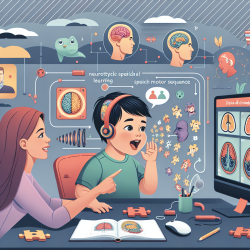Introduction
In the realm of child development and education, mental health literacy is emerging as a crucial component. As practitioners dedicated to improving child outcomes, understanding and leveraging mental health literacy can be transformative. The research article "Mental health literacy measures evaluating knowledge, attitudes and help-seeking: a scoping review" provides a comprehensive overview of existing measures and their psychometric properties, offering valuable insights for practitioners.
Understanding Mental Health Literacy
Mental health literacy encompasses four key domains: understanding how to maintain good mental health, understanding mental disorders and their treatments, reducing stigma against mental illness, and enhancing help-seeking efficacy. These domains collectively contribute to better mental health outcomes by promoting early identification of mental disorders, reducing stigma, and increasing the utilization of mental health services.
Key Findings from the Scoping Review
The scoping review identified 401 studies, which included 69 knowledge measures, 111 stigma measures, and 35 help-seeking related measures. Notably, a significant number of these measures lack validation, which poses challenges for practitioners seeking reliable tools. However, the review provides a valuable compendium of available measures, facilitating the application of existing tools or the development of new ones.
Implications for Practitioners
For practitioners, the findings underscore the importance of using validated measures to assess mental health literacy. By utilizing reliable tools, practitioners can better understand the mental health literacy of children and adolescents, identify gaps in knowledge and attitudes, and tailor interventions accordingly. This approach not only enhances the effectiveness of interventions but also contributes to reducing stigma and improving help-seeking behaviors among children.
Encouraging Further Research
The review highlights several gaps in the current literature, such as the need for measures that address all components of mental health literacy concurrently. Practitioners are encouraged to engage in further research to validate existing measures and develop new tools that are culturally and contextually appropriate. Collaborative efforts across disciplines and demographic groups can lead to more comprehensive and effective mental health literacy interventions.
Conclusion
Mental health literacy is a powerful determinant of mental health outcomes, particularly for children and adolescents. By understanding and applying the insights from the scoping review, practitioners can enhance their practice and contribute to better outcomes for children. For those interested in delving deeper into the research, the original paper is accessible here.










